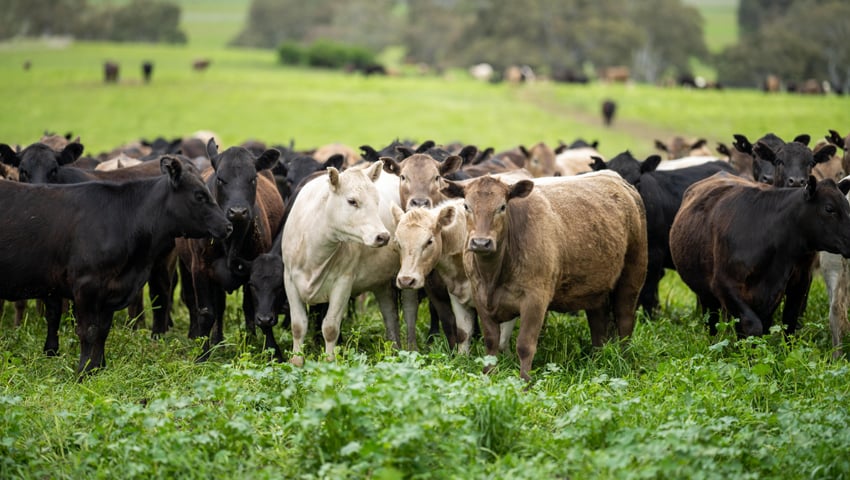“Just as nations are turning to renewables for greater energy security – we must turn to regenerative agriculture and stronger internal food supply chains to deliver nutritional security.” This was the message of keynote speaker, ffinlo Costain, at this year’s Down To Earth South.
Costain, the founder of the Food & Global Security Network and chief editor of 8.9ha, was speaking at the annual regenerative agriculture event organised this week by the Royal Association of British Dairy Farmers.
Speaking to several hundred farmers at Neil Baker’s farm, Haselbury Plucknett in Somerset, Costain said “regenerative agriculture is necessary – not only for farmers – but for everyone living on this remarkable planet.” He said “Global security is maintained by taking steps to recognise and reduce strategic risks – and now in addition to traditional state-on-state or intra-state threats, we face non-traditional threats, the most important of which is “ecological breakdown”.”
The solution, he said, was to recognise the critical importance of regeneratively managed livestock in re-establishing functioning ecology.
He explained that livestock in regenerative systems deliver “climate mitigation and adaptation; global cooling, biodiversity regeneration, food security, income for our farmers, and economic stimulation, ” because cows are “an ecosystem engineer that help to tie nature’s processes back together.”
Costain said that failure to transition to regenerative agriculture created unacceptable risks for society.
“The right to affordable nutrition underpins peace and civil stability – but ecological breakdown is already affecting food production. If we see a 1.5 and then a 2 degree rise in global temperatures, which now seems extremely likely, then we should expect very substantial disruption to harvests and to global food supplies.
“When food is scarce, prices rise, meaning that inequality increases, and simmering resentments can turn rapidly into conflict and even war.
“Healthy soil and a balanced ecosystem are critical for a peaceful society – and we need to deliver these here at home, because ecological breakdown is global, and the pressures on food supply chains will be felt everywhere.
“This ecological crisis – that we’re only just beginning to experience – is already affecting global food production, forcing migration and fuelling violence and terrorism. These impacts will only increase. And this strain on global food supply chains and international trading relationships will lead to greater national protectionism, military adventurism, conflict arising from migration, rapid price rises and supply chain instability.
He said “Power and control in the global food system will become ever more important – and the food system, dependent as it is on fossil-fuels and fossil-fuel-reliant commodity production, is becoming increasingly fragile. The best way that we can prepare for ecological – and for economic and social – instability is to prioritise the regeneration of our soils.”
Costain said that regenerative agriculture should be the goal, not just of farmers, but all stakeholders in food and fibre supply chains. “Of course, farmers are at the front line in protecting and maintaining these critical assets – but farmers need practical support at farm level – and processors and other food businesses need to understand that transformation must be supported throughout the supply chain, with strong leadership from the board room and with managers at all levels empowered to make decisions that support choices taken in the field.”
“This means that knowledge is essential for regeneration – based on practical science and experience, not assumption or prejudice. Critically,” he said “we need to tackle the myth head on, that livestock are somehow bad for ecology. We need everyone to understand that we can’t solve the climate crisis without cows.”
Watch ffinlo Costain’s the TEDx, We can’t solve the climate crisis without cows
